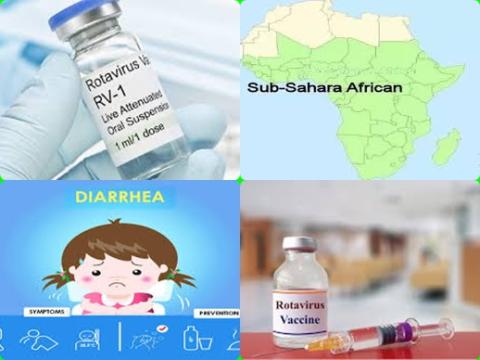
Objectives:
Does rotavirus vaccination reduce risk of rotavirus associated diarrhea in sub-Saharan Africa?
Study design:
This review article included 17 studies with a total of 176,698 participants and all were children less than 5 years of age.
There was no evidence of publication bias.
Results and conclusions:
The investigators found the pooled proportion for pre-vaccination period was 42% [95% CI = 38% to 46%, I2 = 99.00%] and reduced to 21% [95% CI = 17% to 25%, I2 = 99.05%] during post-vaccination period.
The investigators found rotavirus diarrhea significantly reduced in children 12 months as compared to children 12-24 months old.
The investigators found seasonal peaks of rotavirus diarrhea were between June-September.
The investigators concluded the proportions of rotavirus-positive cases reduce from 42% during the pre-vaccination period to 21% post-vaccination period. Thus, there is evidence that the introduction of the rotavirus vaccine in sub-Saharan Africa, has significantly reduced the burden of rotavirus associated diarrhea by half. Therefore, there is a need to encourage the remaining countries to introduce the vaccine to their routine national immunization programs.
Original title:
Evidence of rotavirus vaccine impact in sub-Saharan Africa: Systematic review and meta-analysis by Godfrey O, Zhang W, […], Li D.
Link:
https://www.ncbi.nlm.nih.gov/pmc/articles/PMC7185587/
Additional information of El Mondo:
Find more information/studies on vaccination and malnutrition right here.